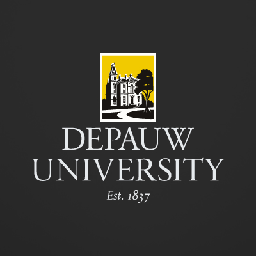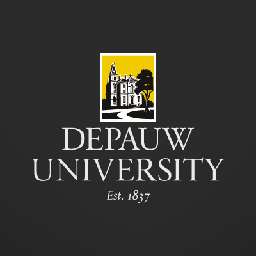
 Robertus Cognoscens @literature.cafe
Robertus Cognoscens @literature.cafe - Cōgitō ergō quaerō · πάντα ῥεῖ · γνῶθι σεαυτόν
- Mnemonic praxis, callisthenic cycles, anagnosmic ethos.
- Mastodon: https://writing.exchange/@robertoqs
Permanently Deleted
Gary K. Wolfe: Iconography of SF
>[...] explore an image that is so ubiquitous in the genre that it transcends the label “icon” — the image of the barrier between known and unknown. Chapters Three through Five explore specific icons that science fiction has evolved concerning artificial or unnatural environments: the spaceship, which represents entry into the unknown; the city, which represents subjugation of the unknown; and the wasteland, which represents the reemergence of the unknown. Finally, Chapters Six and Seven shift the focus from images of the environment to images of humanity itself, first as reflected in technology through the icon of the robot, and then as reflected in the images of transformation that are represented by science fiction’s various treatments of monsters, aliens, and transformed humans. Obviously, many of these icons overlap and merge in certain works. The alien being becomes the robot, the robot becomes the spaceship, the spaceship becomes the city, the city becomes the wasteland: such transformations and combinations of the favourite images of the genre become like variations on a theme [...]
— Gary K. Wolfe, The Known and the Unknown: The Iconography of Science Fiction (1979).
Thank you for your essential work on maintaining literature.cafe's hygiene.
SFS: A History of Science Fiction Criticism (#78, 1999)
Explore. Collaborate. Innovate. Ranked among the nation’s best liberal arts colleges, DePauw University develops leaders the world needs.

Science Fiction Studies: An Academic Journal
Explore. Collaborate. Innovate. Ranked among the nation’s best liberal arts colleges, DePauw University develops leaders the world needs.

From the homepage:
>Science Fiction Studies is published three times a year (March, July, November) by SF-TH Inc. at DePauw University. The Science Fiction Studies website publishes abstracts of all articles, as well as the full texts of all reviews, historical documents, and selected essays appearing in the journal since its founding in 1973 by R.D. Mullen. Full texts of articles are posted only after an issue has been sold out.
The most recent issue, as of November 2023, is #151.
Darko Suvin: Metamorphoses of SF
>In this perspective, SF [sic] should not be seen (as I will argue at length in the theoretical part of this book) in terms of science, the future, or any other element of its potentially unlimited thematic field. Rather, it should be defined as a fictional tale determined by the hegemonic literary device of a locus and/or dramatis personae that (1) are radically or at least significantly different from the empirical times, places, and characters of “mimetic” or “naturalist” fiction, but (2) are nonetheless —to the extent that SF differs from other “fantastic” genres, that is, ensembles of fictional tales without empirical validation— simultaneously perceived as not impossible within the cognitive (cosmological and anthropological) norms of the author's epoch.
— Darko Suvin, Metamorphoses of Science Fiction: On the Poetics and History of a Literary Genre (1979, rev. 2016).
SFE: Darko Suvin's Definition
>In 1972 Darko Suvin defined sf [sic] as “a literary genre whose necessary and sufficient conditions are the presence and interaction of estrangement and cognition, and whose main formal device is an imaginative framework alternative to the author's empirical environment”. By “cognition” Suvin appears to mean the seeking of rational understanding, and by “estrangement” something akin to Bertolt Brecht's Verfremdungseffekt, defined in 1948 thus: “A representation which estranges is one which allows us to recognize its subject, but at the same time make it seem unfamiliar.” Perhaps the most important part of Suvin's definition, and the easiest with which to agree, is the emphasis he puts on what he and others have called a novum, a new thing — some difference between the world of the fiction and what Suvin calls the “empirical environment”, the real world outside. The presence of a novum is insufficient in itself, of course, to define sf, since the different and older tradition of fantasy likewise depends on the novum.
— Brian M. Stableford, John Clute and Peter Nicholls, “Definitions of SF”, The Encyclopedia of Science Fiction, eds John Clute and David Langford (4th edn, 2021).
SFE: Definitions of Science Fiction
Welcome to the fourth edition of The Encyclopedia of Science Fiction.
Last modified June 2020.
SFE: History of Science Fiction
Welcome to the fourth edition of The Encyclopedia of Science Fiction.
Last modified December 2022.
The Encyclopedia of Science Fiction
Welcome to the fourth edition of The Encyclopedia of Science Fiction.
The SFE's article about itself (last modified October 2021).
This week I started reading Ursula K. Le Guin's Rocannon's World (1966). I had previously read The Ones Who Walk Away from Omelas (1973), and the The Dispossessed (1974) is in progress.
Example Title from Lemmy
Now I'm crossposting from Lemmy to Mastodon, by tagging myself, @[email protected]. Lemmy's “Title” field produces, conversely, an initial separated line in the resulting toot.
Edit: But only a link to Lemmy is displayed in said toot, and not the post's “Body” field.
I love that poem, too. I think there is more of the author's work in the referred journal.
“Transegmentals”: a prose poem by Zed Ander (1999)
She didn't look forward to going out to meet her friend for lunch. It was two degrees, and wasn't the fire inviting?
She went, though, out of a sense of social duty, out of the knowledge that she should have friends of her own, out of the memory of a day last winter, when she had canceled the lunch, because of the cold, because of the fire. Her friend had not been amused, nor had the friend's co-worker been amused; abused, perhaps, they had felt abused in the lawyer's office, where there was no fire, and no lover reading it.
Over lunch they talked about her friend's project, a one-woman play using only selections of Emily Dickinson's letters. The question of a title came up: Emily Unplugged; A Taste of Emily (they laughed for the connotations of it). Papers. Emily's Papers. The friend said, “Vellum”, and she said, “That's it!” The friend said, “What?” “Vellum, Emily, that's it, Velemily, something. It's the word, it's the right word, better than Emily Verso and Recto — Vellum.”
The table erupted into textures. The napkins, suddenly, were thick and writable. It was a question of the bite of the paper; how lovely it seemed that paper should have teeth, that Vellum may have the strongest teeth to go with the sword of a pen. It was better than tongues of fire.
— From The Prose Poem: An International Journal, vol. 8.
“The Metaphor”: a prose poem by Douglas Blazek (1999)
One word is busy constructing the others. It is a carpenter creating props for a play. It takes a rock and makes it a hat. Thus there is now a rock-hat. This stuff becomes real. All that is real becomes props while all that's not becomes the play. And somewhere in the performance the words start whispering back to us a permutation we hadn't planned. Strangely, as we, the actors, speak our parts, we grow another body. It is suggested our other body is living under the stage, reciting words of another play which we are simultaneously enacting. And we can feel the floor of the stage about to collapse.
— Douglas Blazek, “The Metaphor”, The Prose Poem: An International Journal, vol. 8 (1999).
Besides the advent of the world wide web, I've always supposed the proliferation of audiobooks and podcasts has had a fundamental link with the proliferation of traffic jams.
I've never been much of an audiobook listener. However, the few ones I've listened to I've enjoyed very much. Excellent narration, excellent voice acting. I used to play them while cooking, and then while eating what I had just cooked. Then if I was drinking wine with the food, the experience continued, extending into the horizons of my imagination.
I think it makes perfect sense. Federation is great, certainly, but at the same time it's desirable to keep certain communities local, as otherwise they might not be able to focus on what they're meant to be about.
While the fluidity of interconnection is one of the principal aspects of the fediverse, if no particular group were able to specialize, then having different instances, or even using different applications, could become pointless.
I'm an avid reader of L. E. Modesitt Jr's oeuvre. I'm usually on at least one of his novels in parallel with whatever else I'm reading at that moment. For a few years now, I've been immersed in his “Saga of Recluce” series, an informal name given by the readers, if I remember correctly. I'm currently at the fifth novel, in publication order, which is also the last one in the internal chronological order. After that, I'll continue with the sixth published novel, one of the oldest stories in the internal chronology, and one that narrates essential events. Following that one, I plan on interrupting the publication order to then read another few novels that I'm more interested in, due to the fundamental importance of those stories in the global arc, and therefore in the worldbuilding. Some of them narrate the oldest events in that world, thus far.
To anyone who may be interested in the series, my recommendation is to not search for worldbuilding and plot details online. I think it's best to get into it without knowing, or knowing as little as possible. Concomitantly, I agree with the author on his recommendation to read everything in publication order.
More recently, I started one of his science fiction novels, which is what has most of my attention at the moment, in fiction reading. It's Gravity Dreams (1999).